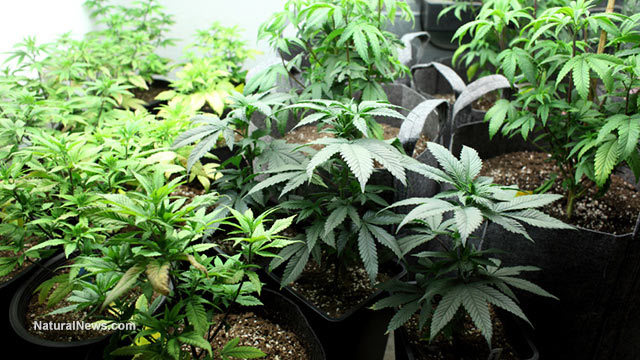The brainy plant – learn how marijuana keeps the mind in tip-top shape
05/17/2016 / By Tara Paras

Even among marijuana reform advocates, misunderstandings on the actual therapeutic value of the cannabis plant exist. Often, marijuana is grouped together with cigarettes, hard drugs and alcohol, as a less harmful vice. The truth is, unlike these other substances, marijuana actually improves the mind and enhances the way people think and process information, as shown in recent studies which link an improvement in Alzheimer’s sufferers with marijuana consumption.
Cannabinoids, or the substances derived from the plant, help regulate the transfer of information between neurons (through gaps called synapses) and alter the brain’s chemistry in a positive way. It acts on cannabinoid receptors in both the cerebellum and basal ganglia, which governs the coordination of movement, and the hippocampus, which “gates” information during memory consolidation. Cannabis, thus, helps its users learn new things or break bad habits, when used appropriately.
Essentially, if your brain were a computer that processes information, cannabis and cannabinoid constituents act by facilitating the reorganization of data. This beneficial effect is also at the heart of why social and economic engineers don’t want you to have it.
“If cannabis were unknown, and bioprospectors were suddenly to find it in some remote mountain crevice, its discovery would no doubt be hailed as a medical breakthrough,” reported The Economist in 2006. “Scientists would praise its potential for treating everything from pain to cancer, and marvel at its rich pharmacopoeia — many of whose chemical mimic vital molecules in the human body.”
Don’t mess with dopamine
The fundamental difference between cannabis and other drugs is its neutrality to dopamine production. Dopamine, the “feel good” neurotransmitter, is produced in neurons without cannabinoid receptors, which means that marijuana does not interfere with the body’s natural production of the chemical. In contrast, drugs that induce physical dependence and are frequently abused disrupt dopamine production and lock a user into an ever-growing dependence.
“Marijuana is distinguished from most other illicit drugs by the locations of its brain-receptor sites for two predominant reasons: (1) The lack of receptors in the medulla significantly reduces the possibility of accidental, or even deliberate, death from THC, and (2) the lack of receptors in the mesocorticolimbic pathway significantly reduces the risks of addiction and serious physical dependence,” wrote Jon Gettman in a 1995 review of cannabis and how it affects the human brain.
Although there is still much to learn about cannabis and its effects on our nervous system, the available science makes it clear that cannabis is far from harmful. In fact, it might just be the key to having a healthier mental, physical and emotional wellbeing.
Sources used:
Tagged Under: Cannabinoids, marijuana, medical marijuana, positive effects of marijuana




















